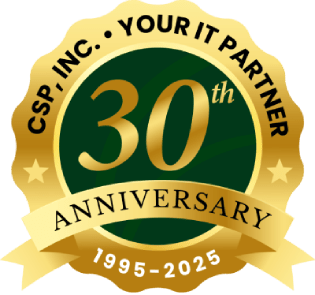1310 Nowell Road
Raleigh, NC 27607
1310 Nowell Road
Raleigh, NC 27607
Existing CSP Client: (919) 424-2060
SALES: (919) 420-3231
If you’ve decided to outsource your IT services, then you’ll want to know what is covered in your agreement and what each item will cost. To help guide the way, we’ve outlined nine items below that you should have in your Managed IT Services contract.

What happens after signing your Managed Services Agreement? The implementation of a contract marks the starting point, for both you and the service provider. Regardless if these services are provided during the establishment of a new relationship or updated with an existing provider, you are relying heavily upon the service provider to supply your IT needs. That makes it important to know what you’re paying for.

Even though you may have a contract that states and governs the Managed Services, your contract may still lack significant details. These details should address what you can expect to encounter once the contract is in force. Therefore, it’s best to fully understand all expectations for your IT service components upfront.
If you’ve decided to outsource your IT services, then you’ll want to know what is covered in your agreement and what each item will cost. To help guide the way, we’ve outlined nine items below that you should have in your Managed IT Services contract. Make sure all your business IT needs are handled. Review and evaluate each providers offering and their contractual agreement.
When discussing what’s covered in a Managed IT Services contract with the service provider, it would help to create a list of questions to ask beforehand. Below are just a few you might consider:
Below are 9 important items to discuss with your IT Service Provider. Make sure they’re covering the things that are important to you.
All Managed IT Services need to include basic server maintenance, network administration, storage maintenance, and typical network issues. Preferably the Managed Services contract should cover what you want accomplished on your network. Before meeting with the provider, create your requirements list. That list should include your current IT service needs.
Good security is critical these days. Your Managed IT Services Provider should have a comprehensive plan detailing how cybersecurity will be addressed. Their procedure must include:
Helpdesk managed support is standard in many contracts. However, you’ll need to know if the Managed Services Provider is local or will they only provide remote support? If your current IT services are cloud-based, then remote support should be adequate. However, pay close attention to the hours of Helpdesk Support stated in the agreement. If they don’t offer 24/7 support, then you need to confirm that their support covers your business hours and weekend support if required.
When reviewing Managed IT Services agreements, always ask how your data will be backed up and stored. You may have an on-premise physical backup and storage asset, but the service provider may use the cloud for that IT function. These are areas you’ll want to know more about. If the provider does use the cloud, you’ll want to know:
Every part of your IT system, including network monitoring, needs to be covered under the service agreement. Control plays a critical role, especially with any network vulnerabilities that can disrupt your network. Most solutions have the provider monitoring each area of your system. However, you’ll want to ask them if they cover mobile devices, virtual machines, and remote users. Network monitoring must also include intrusion detection and prevention, along with firewall control and configuration.
Check the service agreement to make sure a disaster recovery plan comes standard. If not mentioned in the agreement, ask to have it added. A complete per location, disaster recovery plan should be included, with exact details listed within the IT service contract. When disaster strikes your business, you’ll want immediate access to your backups and a recovery plan that will get you back online quickly.
Along the way, your IT infrastructure will change. As it does, those old policies will need re-written and updated, or new ones created, especially if your industry has mandatory compliance regulations. You can request any and all new or updated documentation covers security, data monitoring, and BYOD. Policy creation and updates to current plans should be stated clearly in the Managed Service agreement.
When terminating your Managed Service agreement, it’s best to check what will take place before you sign the contract. You’ll want to know a few things ahead of time:
The non-solicitation agreement must cover protection for both parties, primarily, not to reach out and solicit to hire each other’s employees. It’s also standard practice for a provider to agree not to sell your information to other companies, especially when they might be seeking to establish a service agreement contract with you.
Businesses depend on their information technology, especially as advancements in the IT world are becoming more critical than ever for handling the day-to-day running of any company. While most companies start out trying to manage their own IT needs, it may soon become clear that you’re in way over your head. At that point, a great Managed IT Service provider can take these worries off your plate and help you move forward in the right direction.
Did you find this article informative? If you liked this one, check out our other content we think you’ll find interesting.
Learn more on how Managed IT Services can help your business.
Discover the best IT Company suited for your business.

Always at your service to provide the highest level of quality support to our customers.

Anthony Firth Client Engineer

“I’m passionate about building and fostering relationships, and finding solutions for success.”

Michael Koenig Client Account Manager

“I help clients stabilize and grow their IT infrastructure so they can focus on growing their core business.”

Josh Wilshire Systems Engineer Team Lead

“I strive to provide the highest level of quality service to our customers.”

Tommy Williams Sr. Hardware Engineer

“I’m driven by the steadfast belief that technology must serve as a business enabler. This mantra has driven 21
Years of successful partnerships.”

Stephen Riddick VP Sales & Marketing

“CSP doesn’t succeed unless your company succeeds.”

Stephen Allen Inventory Manager

“Through my intuition and genuine concern to help others I have built long-lasting relationships with our customers, co-workers and business partners.”

Scott Forbes VP Support Services

“Every day, I work with clients to help plan the future of their businesses.”

Michael Bowman vCIO

“Your IT problems become our IT solutions.”

Mark McLemore Project Engineer

“Managing internal and external operations to ensure that CSP provides quality and reliable customer service .”

Margie Figueroa Business Manager

“Providing quality internal and externals financial support to our customers and accounting support to CSP.”

Katie Steiglitz Accounting Administrator

“Some call me the CEO. I call myself the Cheerleader for an awesome team!”

William B. Riddick Founder & CEO

“CSP is here to assist you with your IT needs.”

Beth Wylie Inside Sales Manager




On What Questions You Need To Ask Before Signing Any Agreement.
"*" indicates required fields

Raleigh IT Support Company and IT Services Provider | CSP Inc.
1310 Nowell Rd,
Raleigh, NC 27607
Existing CSP Client: (919) 424-2060
SALES: (919) 420-3231
Receive email updates and informative marketing materials by subscribing to our newsletter.
"*" indicates required fields